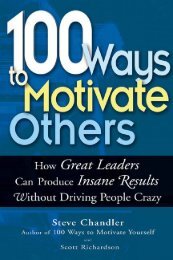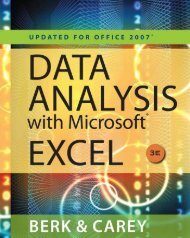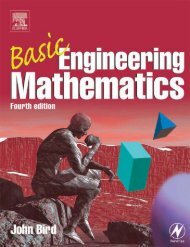How-to-Write-a-Better-Thesis
Create successful ePaper yourself
Turn your PDF publications into a flip-book with our unique Google optimized e-Paper software.
52 4 Making a Strong Start<br />
What constitutes ‘relevant’ varies between disciplines, but in general the bulk of<br />
the citations will be <strong>to</strong> academic literature, that is, <strong>to</strong> documents that are accepted<br />
by the community as a reliable source of knowledge. These are typically refereed,<br />
widely accessible, identifiable, and durable. A PowerPoint slide found on the<br />
web fails most of these criteria, as does an email, even if from an eminent authority.<br />
Slightly more tricky are primary sources. In the sciences, these might include<br />
lab notebooks, say; these are the evidence underpinning your conclusions, but the<br />
citable form of these is the discussion of them in your thesis, not the notebooks<br />
themselves. In the humanities, primary sources might include, say, anything from<br />
wartime diaries <strong>to</strong> logs of web page accesses; whether they would be cited is discipline-dependent,<br />
but most often they would be listed as sources rather than included<br />
in the thesis’s bibliography.<br />
There are many ways in which we learn beyond the academic literature, including<br />
newspaper articles, corridor conversations, resources such as Wikipedia, and<br />
the web in general. In most cases it is appropriate <strong>to</strong> confirm such knowledge in<br />
an academic source, and it is the academic source that should be cited. To take a<br />
wider perspective, we read for many reasons: <strong>to</strong> establish that our work is novel and<br />
<strong>to</strong> identify new lines of questioning, for example, as well as <strong>to</strong> set our work in an<br />
academic context. Such reading informs us, but is not necessarily a part of the final<br />
thesis. Reading can sometimes be footnoted rather than listed as a formal reference.<br />
To explore the literature, I recommend the strategy of finding the gateways then<br />
following the paths. A gateway is a paper or book or other source you discover<br />
through actively exploring, say by using a search facility <strong>to</strong> try and find new material<br />
on a given <strong>to</strong>pic; or you may be introduced <strong>to</strong> a gateway in a seminar, or by a<br />
colleague. In such discovery, don’t expect <strong>to</strong> find what you need by simply issuing<br />
a quick query at a search interface. As you search, you will learn new terminology<br />
and use it <strong>to</strong> help discover more references. Also, be broad in your use of <strong>to</strong>ols.<br />
General web resources, university portals, and publisher portals all tend <strong>to</strong> index<br />
different materials and may provide very different results.<br />
Gateways lead <strong>to</strong> paths. Each paper has a list of citations; each paper may also be<br />
cited by others, and online resources can help you find these works <strong>to</strong>o. Following<br />
these trails, or pathways, is a certain way <strong>to</strong> discover new literature. Use the web <strong>to</strong><br />
chase down other work by the same authors and same research groups. Once you’ve<br />
identified other people working the same area, regularly check <strong>to</strong> see if they have<br />
published something new. I also recommend that you plan your search. Identify<br />
fields and subfields that you need <strong>to</strong> explore, and focus on one at a time. And be<br />
inclusive in your definition of ‘relevance’; for example, a paper can be useful, not<br />
just because it is on the right <strong>to</strong>pic, but because it embodies an approach <strong>to</strong> a similar<br />
kind of problem in an interesting way, and it is this approach that you wish <strong>to</strong> cite.<br />
Don’t neglect the traditional source of academic literature: namely, libraries. Students<br />
in some disciplines now have little immediate reason <strong>to</strong> go <strong>to</strong> the library, since<br />
so much of the literature is online, but even in these cases I advise the occasional<br />
library visit—and I am often rewarded by students telling me how much unexpected<br />
work the visit turned up. Simply browsing the shelves near their usual journals and<br />
texts can turn up a great range of new sources.


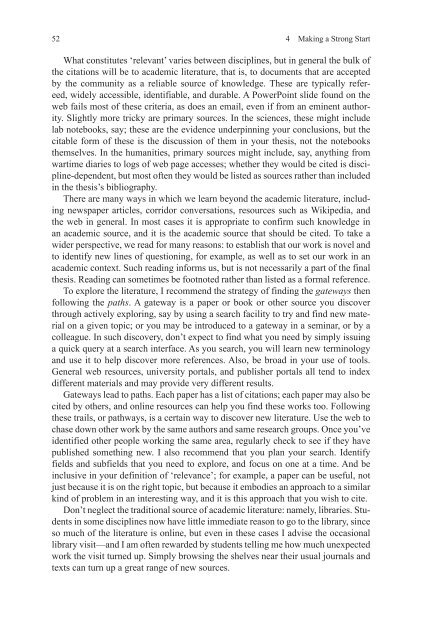

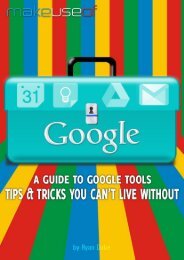
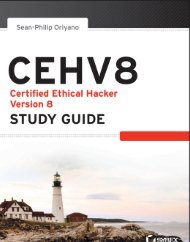
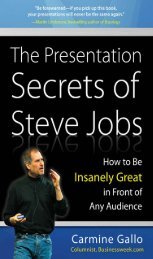
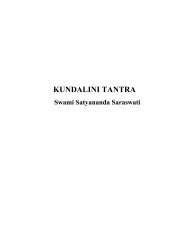
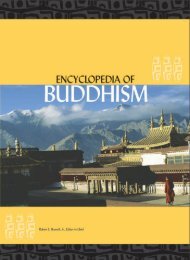
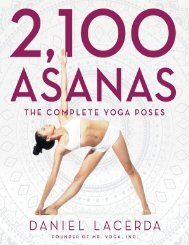
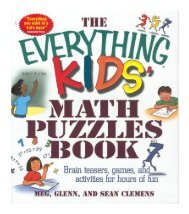


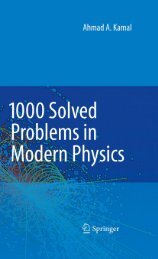
![[Lonely Planet] Sri Lanka](https://img.yumpu.com/59845622/1/169x260/lonely-planet-sri-lanka.jpg?quality=85)
